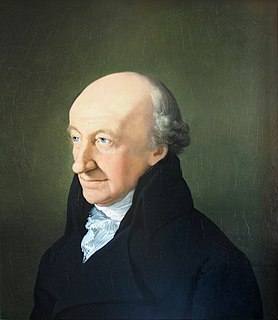A Quote by Christoph Martin Wieland
The compulsion of fate is bitter.
Quote Topics
Related Quotes
There are three things we have to let go of. The first is the compulsion to be successful. Second, is the compulsion to be right-especially theologically right. (That's merely an ego trip, and because of this "need" churches split in half, with both parties prisoners of their own egos.) Finally, there is the compulsion to be powerful, to have everything under control.
Fate is a misplaced retreat. Many people rationalize an unexplained event as fate and shrug their shoulders when it occurs. But that is not what fate is. The world operates as a series of circles that are invisible, for they extend to the upper air. Fate is where these circles cut to earth. Since we cannot see them, do not know their content, and have no sense of their width, it is impossible to predict when these cuts will slice into our reality. When this happens, we call it fate. Fate is not a chance event but one that is inevitable, we are simply blind to its nature and time.






































